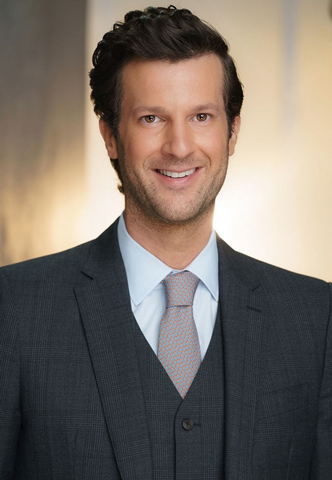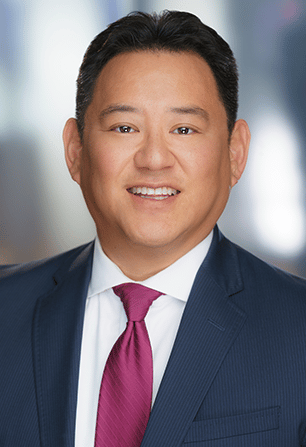Summertime house parties, backyard barbeques, and holiday grilling are common in American life. But what happens if you visit someone else’s house and you get injured?
Whenever you go to someone else’s property, you assume a certain level of safety – as is your right. In fact, homeowners have a legal duty to protect visitors from any unreasonable risks of harm on their property. The law of premises liability makes owners or tenants responsible for any personal injuries that happen to visitors in their homes.
Property owners or renters must take ordinary care to keep guests and invitees safe. It’s not enough to simply put up a sign that says visitors enter at their own risk. Homeowners must:
- Regularly inspect their home for any dangers, and
- Repair any dangerous conditions that exist or
- Adequately warn visitors about the dangerous conditions.
Unfortunately, you can get seriously injured on someone else’s property. In the aftermath of an accident, you could get hit with major medical bills. If your injury is bad enough, you may become unable to work or do your job. In a worst-case scenario, you may never fully recover – you could be left with permanent scarring, a disability, or the need for lifelong supportive care.
Many homeowners’ and renters’ insurance policies cover injuries suffered by guests on the property. However, you want to make sure you get the maximum possible settlement based on how deeply the injury has affected your life. Beware of insurance companies that reach out with lowball settlement offers soon after your injury. You should always talk to a personal injury lawyer first before accepting or signing a settlement offer.
What to Do If You’re Hurt On Someone Else’s Property
The first thing you should do after an injury at someone else’s house is to get medical attention as soon as possible. The second step you should take is to contact a personal injury lawyer.
Even if you “feel fine,” or you can “walk it off,” your injuries should not be discounted. Concussions can happen even if you never lose consciousness. Other types of latent injuries may not become obvious until much later, at which point your condition could have worsened.
Not only is seeing a medical professional important for your health, but it’s also critical if you want to file a claim for personal injury damages. Getting a medical diagnosis soon after your injury helps establish a paper trail that proves the cause and severity of your injuries. The more convincing your evidence, the better chance you have at negotiating a good settlement.
Common Premises Liability Injuries
Property owners aren’t always responsible for the actions of intoxicated guests even if alcohol is served. However, homeowners can be liable for injuries that happen because they gave alcohol to a minor on their property. Some states have “social host liability” laws that could hold a property owner responsible if they serve alcohol to a guest who goes on to cause an accident because they were intoxicated. Some state laws do the opposite – shielding hosts from responsibility for actions taken by intoxicated guests.
- Slip and fall injuries make up the most common premises liabilities claims. You may trip, slip, or fall because of wet or uneven floors, lifted carpet, uneven grounds or landscaping, missing stairs, and other obstacles like children’s toys. Slips and falls can result in extremely serious harm like broken bones and traumatic brain injuries.
- Falling objects or trees can cause severe damage, including concussions or TBI if something falls on your head. Heavy branches could fall if trees on a property have rotted from neglect or improper maintenance. Improperly secured fences or fixtures could come loose and fall on visitors, leading to serious injuries.
- Trampolines, bouncing castles, slides, and other recreational equipment can pose dangers to visitors (especially children) who fail to understand the risks. The equipment could be especially dangerous if it’s improperly set up, secured, or maintained.
- Animal or dog bites could cause serious injuries. Homeowners and property renters are responsible for the behavior of their pets on (and also outside) the premises. A bite or mauling could lead to a claim for personal injury damages.
- Swimming pools naturally increase the risks on a property. Visitors could slip and fall on the wet floor around pools, which also create drowning hazards. Many states and localities have laws regulating how swimming pools should be built and maintained for safety. Most require that swimming pools are properly fenced to keep out children who may otherwise be tempted to take a dip (these are called attractive nuisance laws).
Is the Owner Liable for Injuries on Their Property?
Based on premises liability law, yes. A property owner, homeowner, renter, or tenant could be held legally responsible for injuries caused by dangerous conditions on their property.
If you or someone you love has been injured at someone else’s house, you could have a personal injury claim for damages. Damages usually involve monetary compensation to help “make you whole” after the losses you suffered because of your injury.
- Economic damages cover actual monetary losses that you suffered, such as medical bills, prescription medication costs, and other expenses related to your injury. Economic damages also cover any wages you’ve lost as a result of being unable to work.
- Non-economic damages cover you for pain and suffering, mental and emotional anguish, loss of enjoyment of life, and other non-monetary losses. These can be more difficult to quantify but it doesn’t make your suffering any less real. The more severe, debilitating, or long-lasting your injury, the more non-economic damages you can expect.
- Punitive damages punish the person responsible for your injuries for their bad behavior. Punitive damages aren’t always available depending on which state you’re in. If they are available, you may get additional compensation if the property owner acted recklessly, intentionally, or maliciously in causing your injury.
If a dangerous condition at someone’s house causes you to get injured, the law could hold the property owner responsible for failing to keep you safe. A personal injury lawyer can help you file your claim, gather enough evidence, and get the settlement you deserve.
If you were injured at someone’s party and you think you deserve compensation, call the offices of Wilshire Law Firm at (800) 501-3011 or fill out our contact form above for a FREE consultation. We’ll fight to get you the justice you deserve!











